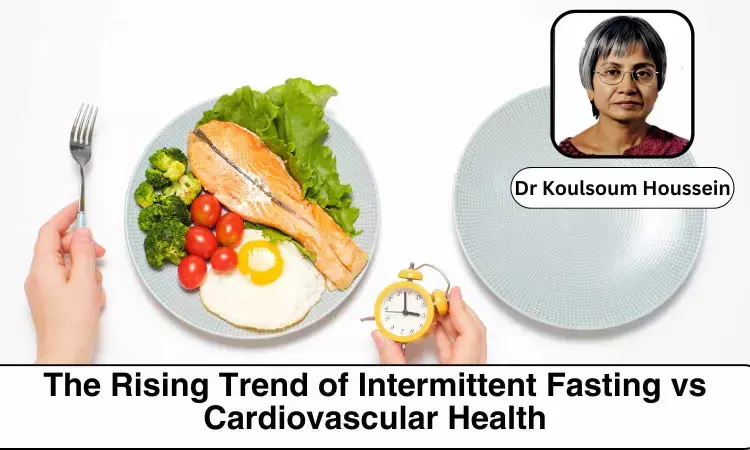- Home
- Medical news & Guidelines
- Anesthesiology
- Cardiology and CTVS
- Critical Care
- Dentistry
- Dermatology
- Diabetes and Endocrinology
- ENT
- Gastroenterology
- Medicine
- Nephrology
- Neurology
- Obstretics-Gynaecology
- Oncology
- Ophthalmology
- Orthopaedics
- Pediatrics-Neonatology
- Psychiatry
- Pulmonology
- Radiology
- Surgery
- Urology
- Laboratory Medicine
- Diet
- Nursing
- Paramedical
- Physiotherapy
- Health news
- Fact Check
- Bone Health Fact Check
- Brain Health Fact Check
- Cancer Related Fact Check
- Child Care Fact Check
- Dental and oral health fact check
- Diabetes and metabolic health fact check
- Diet and Nutrition Fact Check
- Eye and ENT Care Fact Check
- Fitness fact check
- Gut health fact check
- Heart health fact check
- Kidney health fact check
- Medical education fact check
- Men's health fact check
- Respiratory fact check
- Skin and hair care fact check
- Vaccine and Immunization fact check
- Women's health fact check
- AYUSH
- State News
- Andaman and Nicobar Islands
- Andhra Pradesh
- Arunachal Pradesh
- Assam
- Bihar
- Chandigarh
- Chattisgarh
- Dadra and Nagar Haveli
- Daman and Diu
- Delhi
- Goa
- Gujarat
- Haryana
- Himachal Pradesh
- Jammu & Kashmir
- Jharkhand
- Karnataka
- Kerala
- Ladakh
- Lakshadweep
- Madhya Pradesh
- Maharashtra
- Manipur
- Meghalaya
- Mizoram
- Nagaland
- Odisha
- Puducherry
- Punjab
- Rajasthan
- Sikkim
- Tamil Nadu
- Telangana
- Tripura
- Uttar Pradesh
- Uttrakhand
- West Bengal
- Medical Education
- Industry
Intermittent Fasting: The Rising Trend vs. Cardiovascular Health - Dr Koulsoum Houssein

For those who are trying to lose weight or improve their Cardio metabolic health (reduce their blood pressure or blood glucose or cholesterol), there are various proposed ways of dieting.
One, which is gaining in popularity and which seems to be efficient, at least in the short-term goals of losing weight and improving blood glucose and cholesterol levels, is the "intermittent fasting" diet, which aims at eating within 8 hours and fasting the remaining 16 hours of a 24 hours day. However, this study, which appeared in the "American Heart Association Epidemiology and Prevention/ Lifestyle & Cardiometabolic Health Scientific Sessions 2024 Abstract", found that those who followed this restricted 8 hours pattern of dieting had a 91% higher risk of death from cardiovascular disease as compared to those who continued their standard habit of eating over 12 to 16 hours in a day. Although the above study has some limitations as it relies on participants information and cannot be verified, its findings are highly plausible for the following reasons:
1) Those who initiate these kinds of diets already have a cardiovascular risk like increased weight, diabetes or hypertension, or dyslipidemia, and so are already in the higher risk group.
2) Although they restrict their food intake to 8 hours a day, the quantity and especially the quality of the nutrients are not restricted or controlled, thus further increasing their risk of cardiovascular disease.
3) From childhood, our body has been used to several meals over 24 hours and suddenly subjecting it to a prolonged fast of 16 hours a day is probably not compatible, not only physiologically but also socioculturally, thus isolating the person, increasing stress levels.
4) Last but not least, for optimal functioning of all organs, particularly the brain, it is essential that the blood glucose concentrations be maintained within a normal range. Insulin brings down the blood sugar levels, but in the fasting state, when the blood glucose levels are low, in order to increase the levels for the functioning of the brain and muscles, there will be increased secretion of counter-regulatory hormones like glucagon, glucocorticoids and catecholamines which are also called stress hormones.
And we all know that increased secretion of these stress hormones for prolonged periods increases the risk of cardiovascular death. In conclusion, it does seem to be safer to restrict oneself to more standard ways of dieting by restricting the quantity and improving the quality of ingested nutrients rather than subjecting oneself to intermittent fasting.
Disclaimer: The views expressed in this article are of the author and not of Medical Dialogues. The Editorial/Content team of Medical Dialogues has not contributed to the writing/editing/packaging of this article.
Dr Koulsoum Houssein, MBBS, MD (General Medicine), Diploma (Tropical Medicine), is a consultant at Holy Family Hospital, Mumbai, with over 25 years of experience. Dr Koulsoum Houssein specializes in general medicine and has expertise in the fields of critical care and internal medicine.


